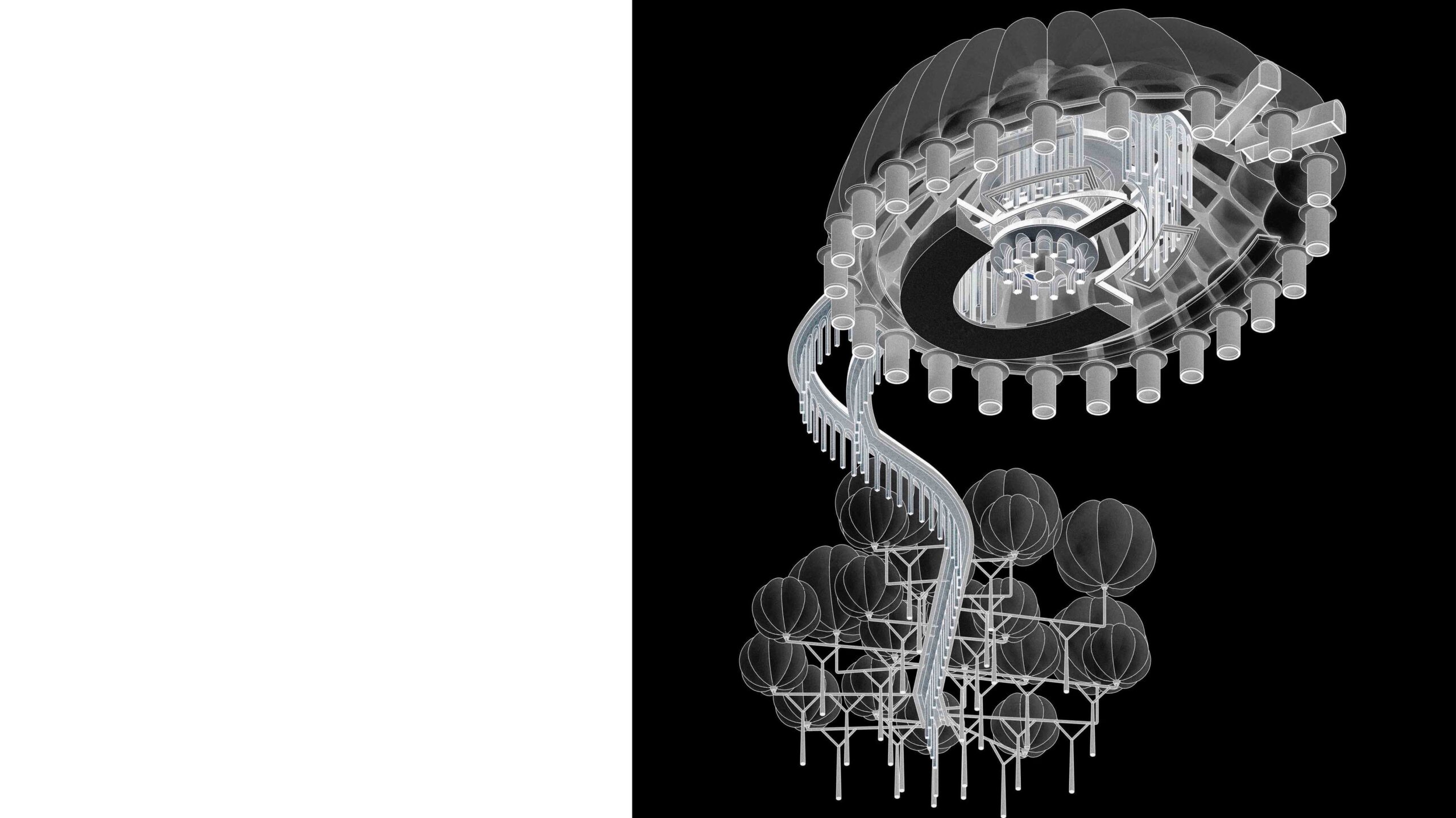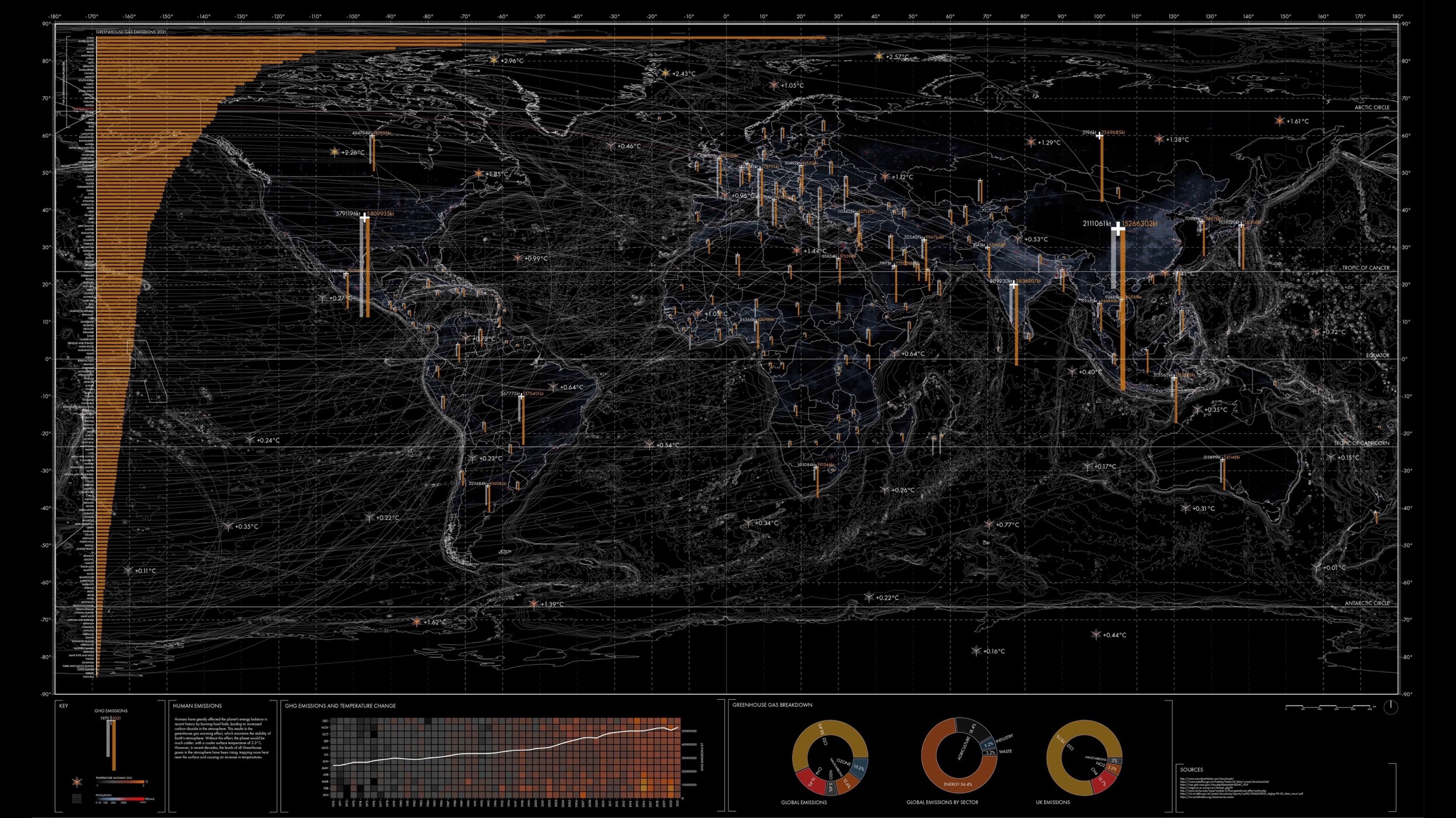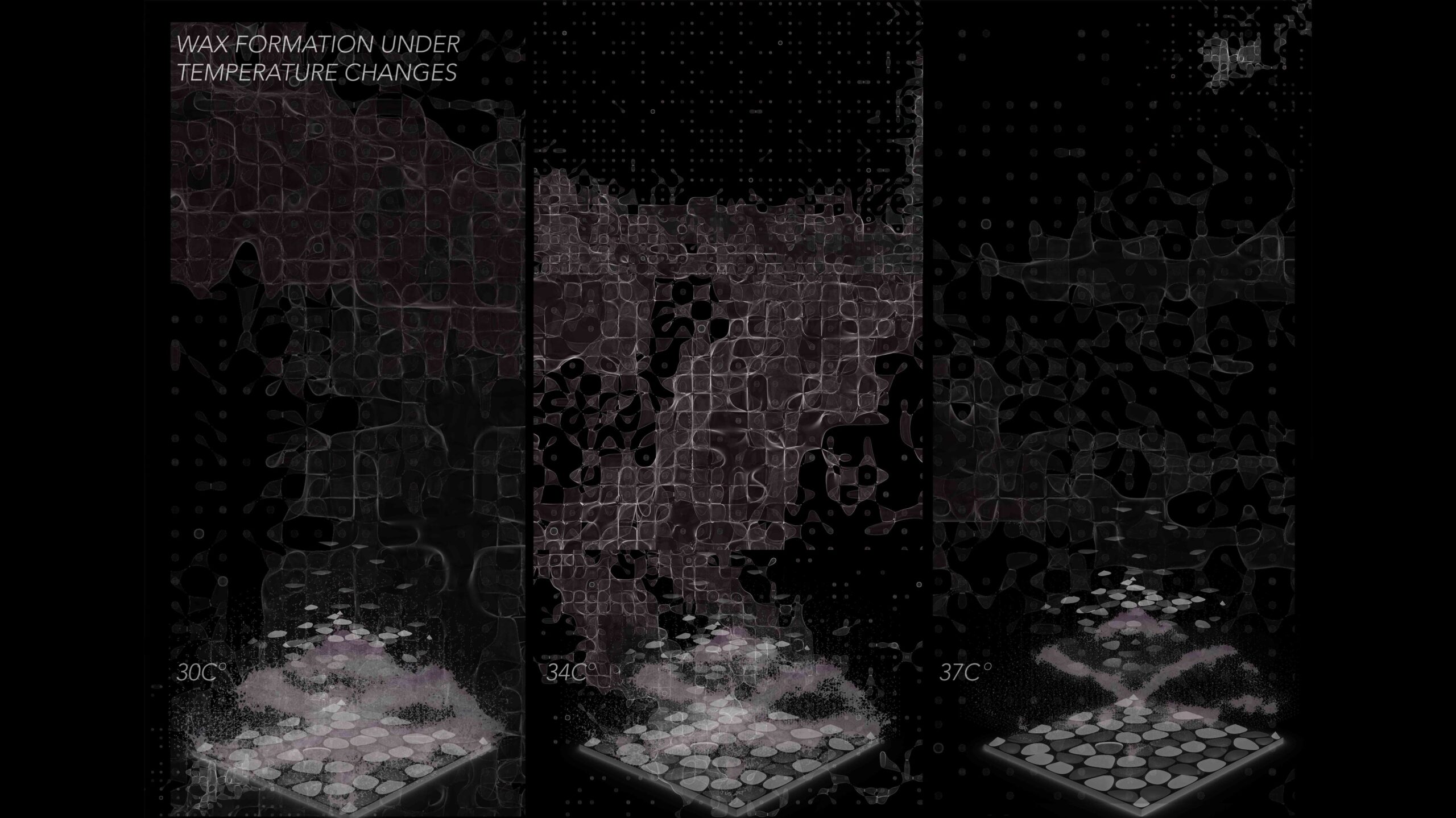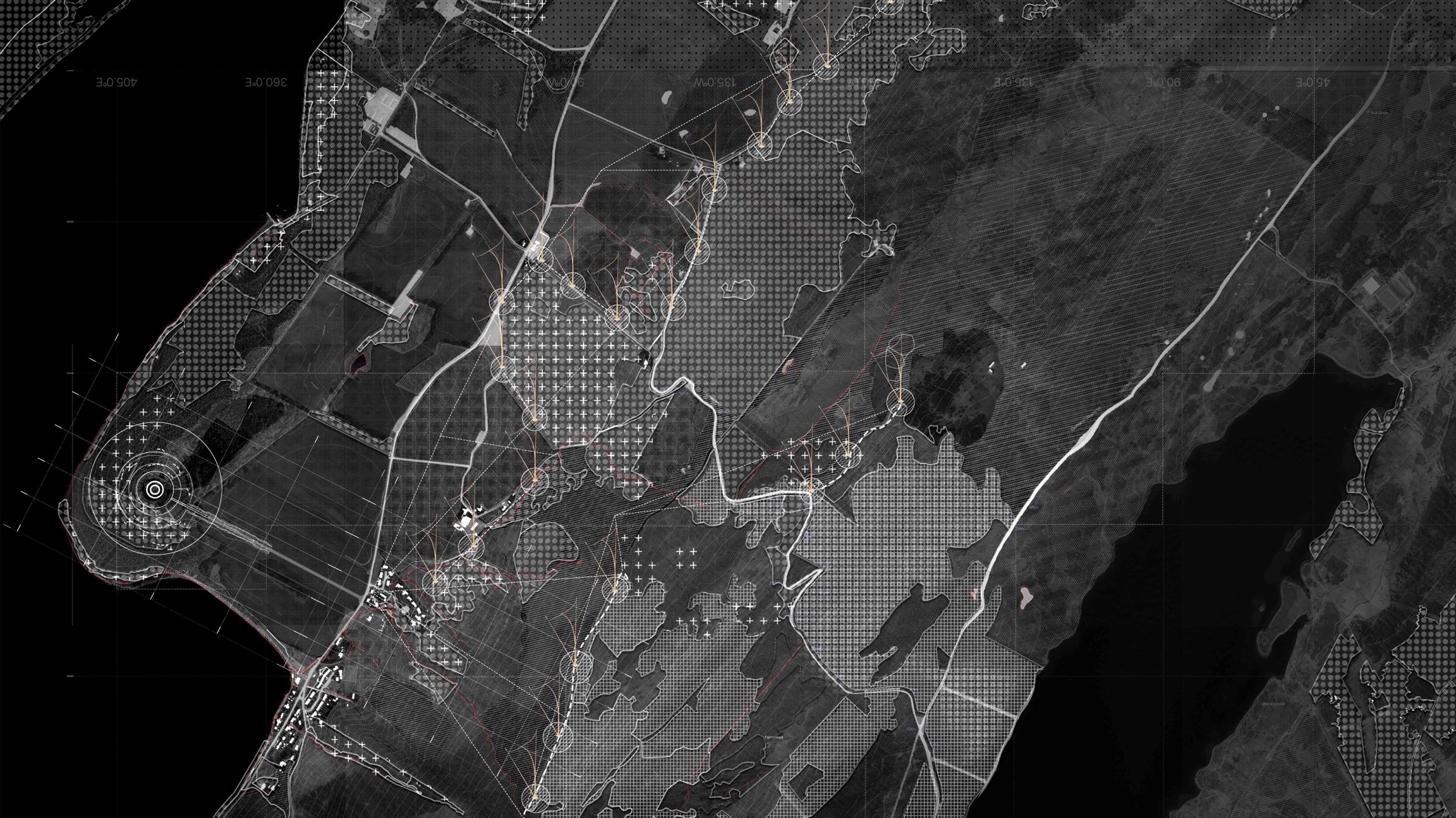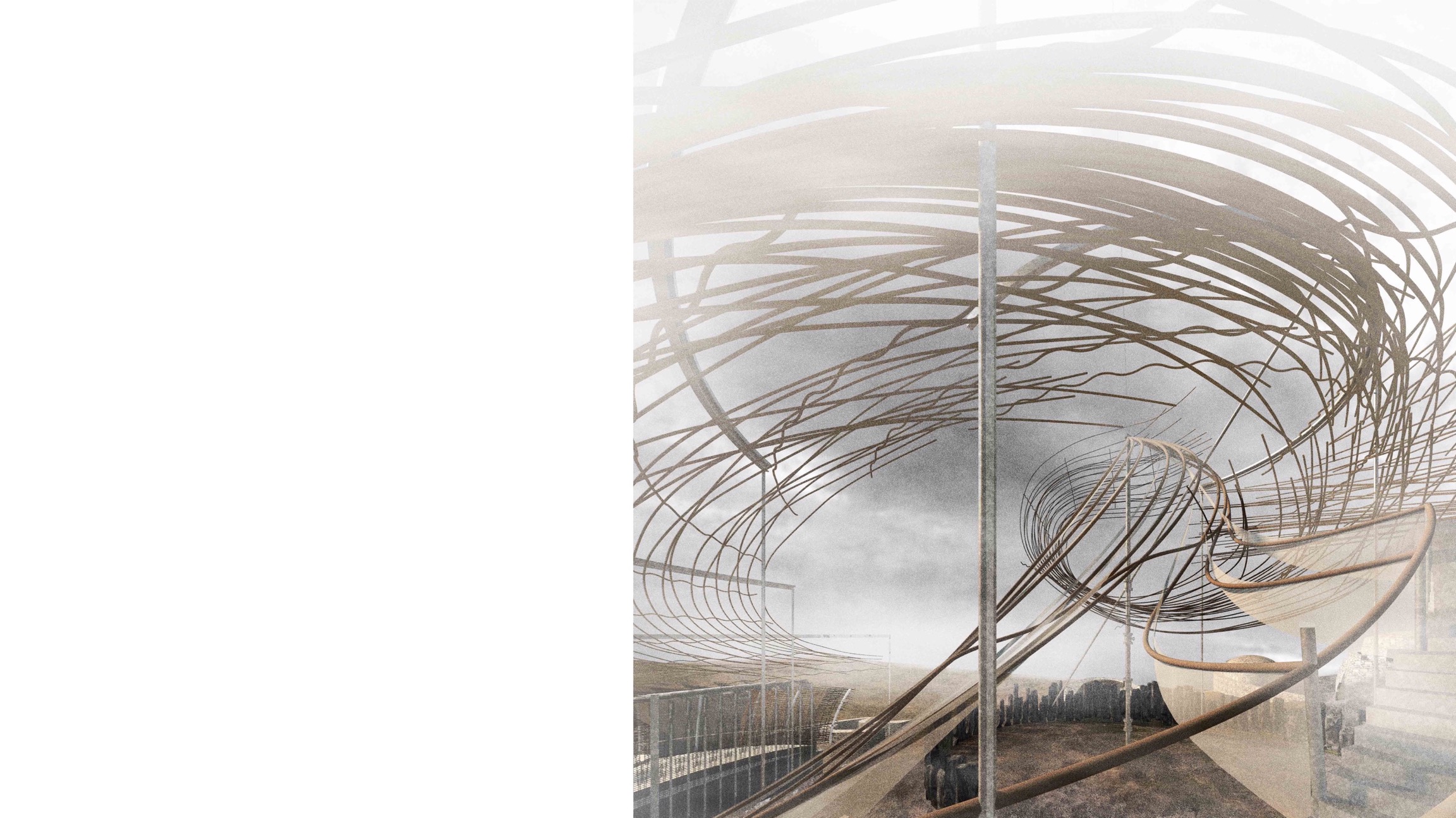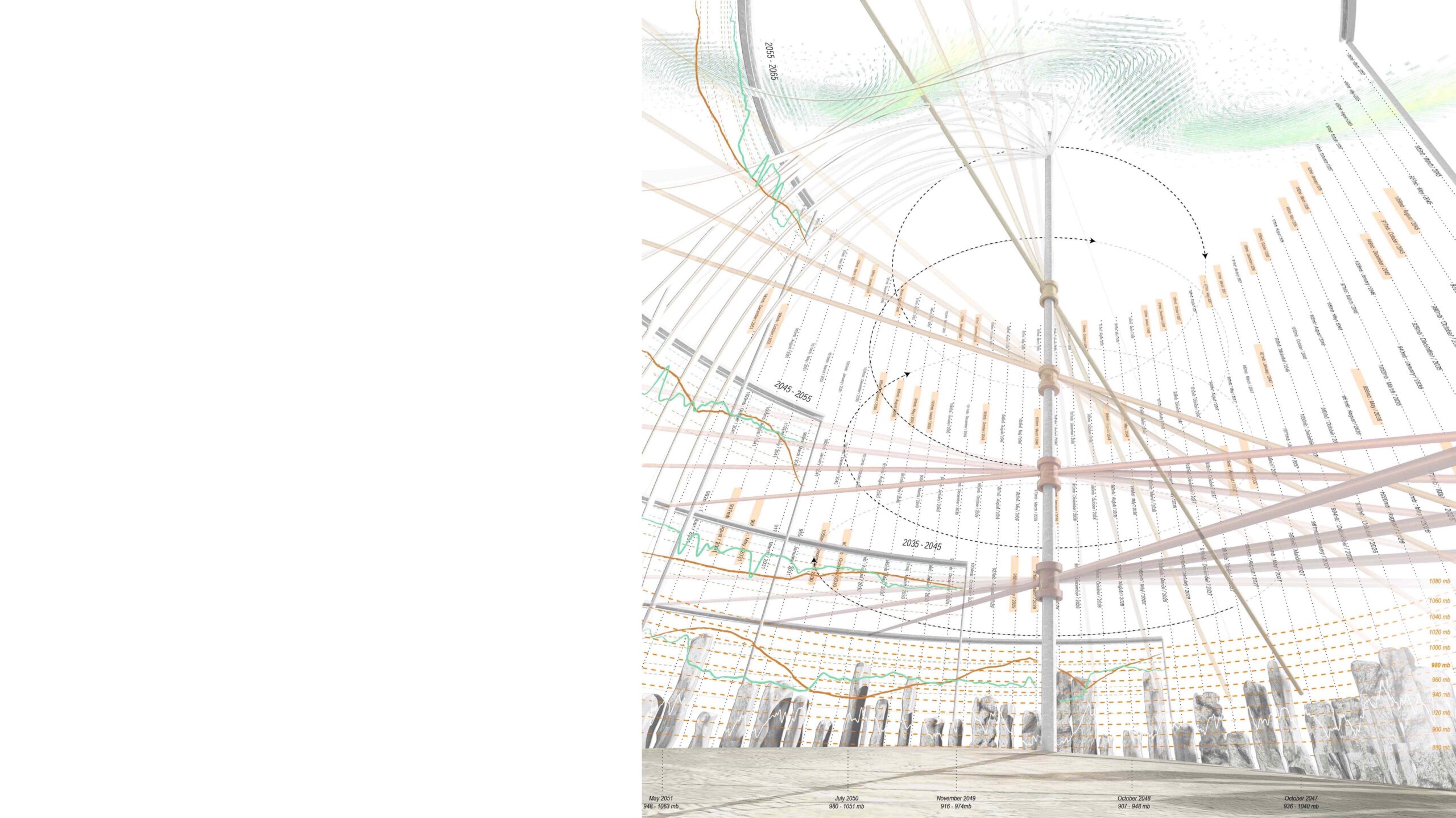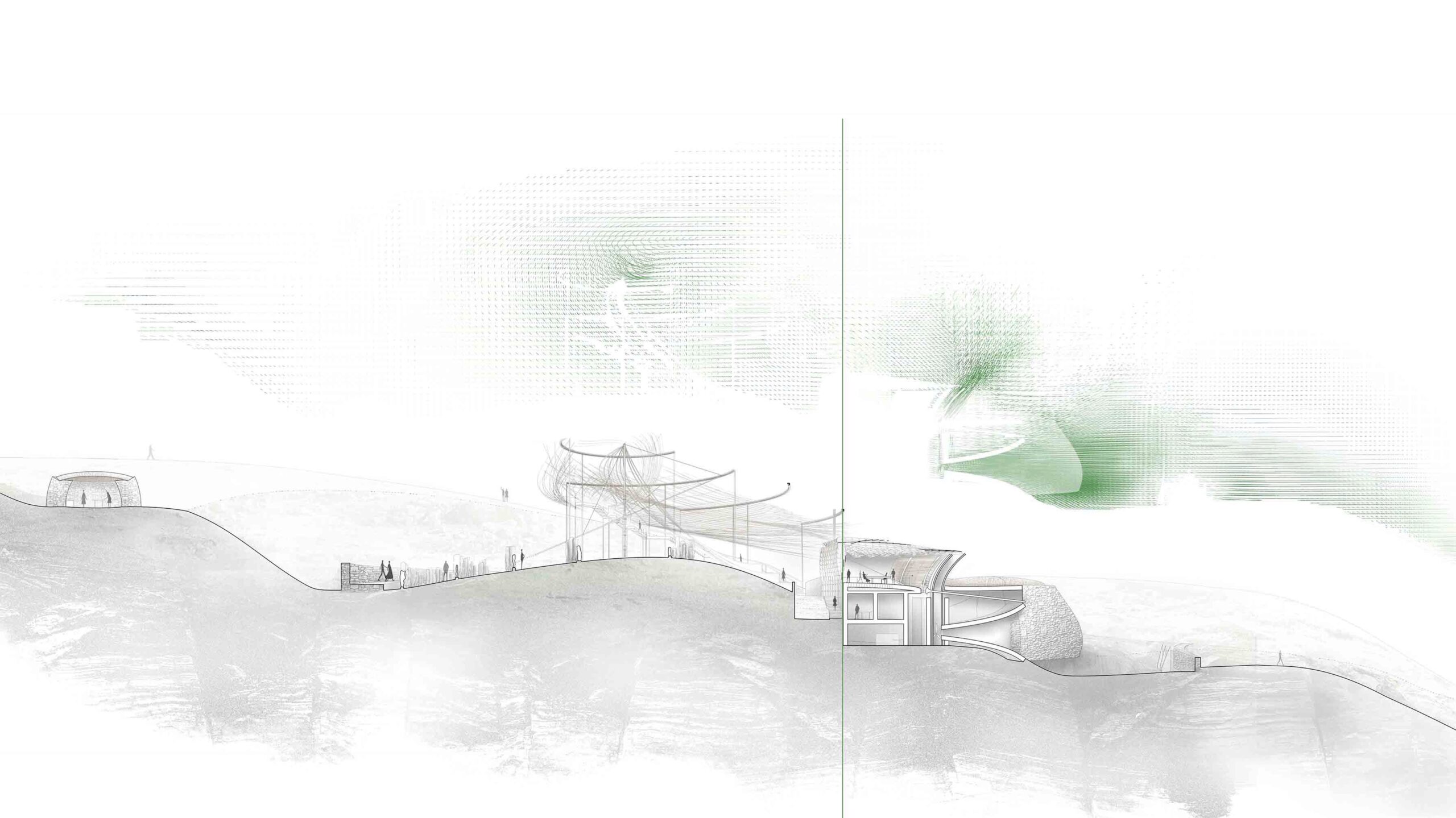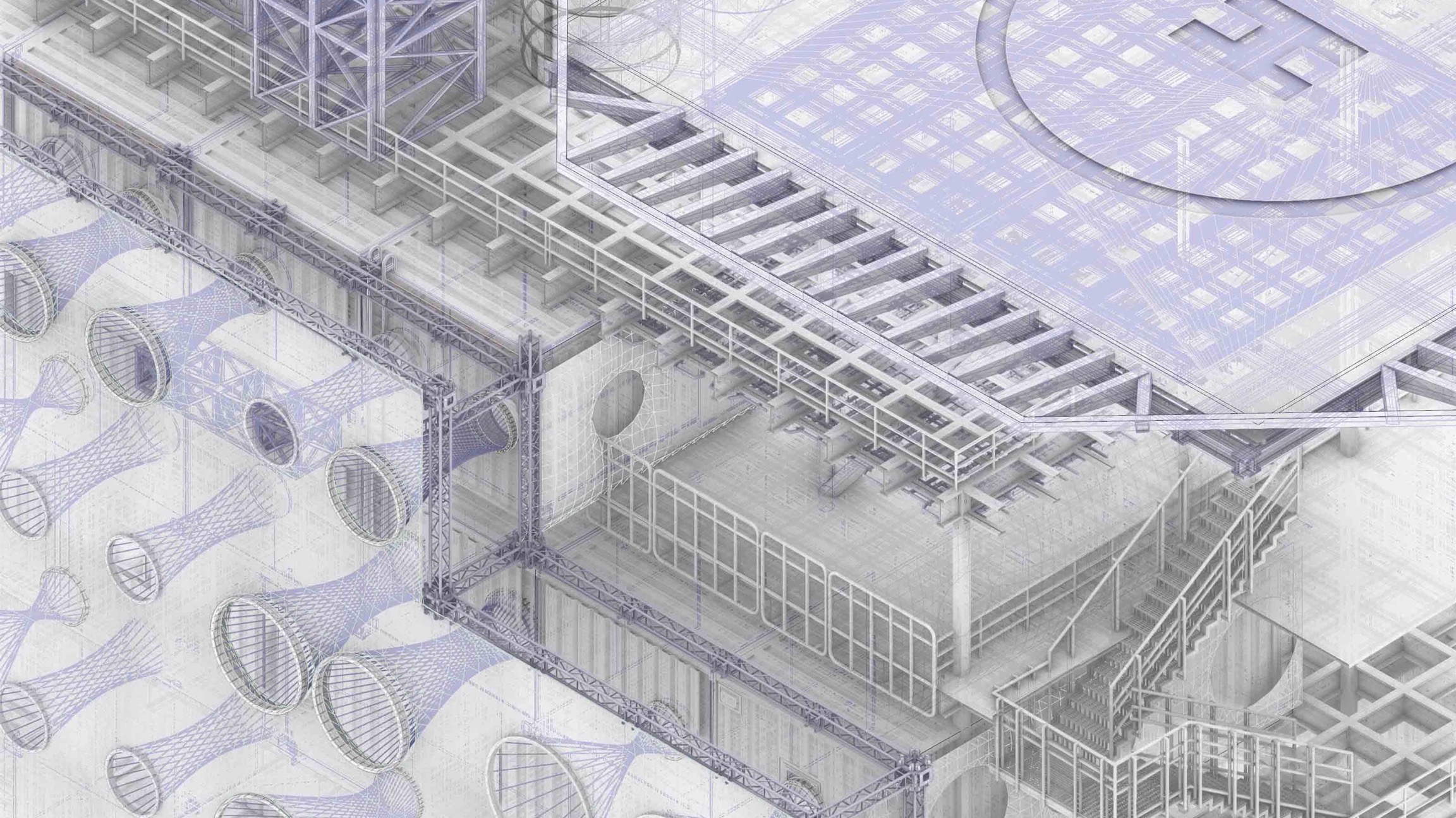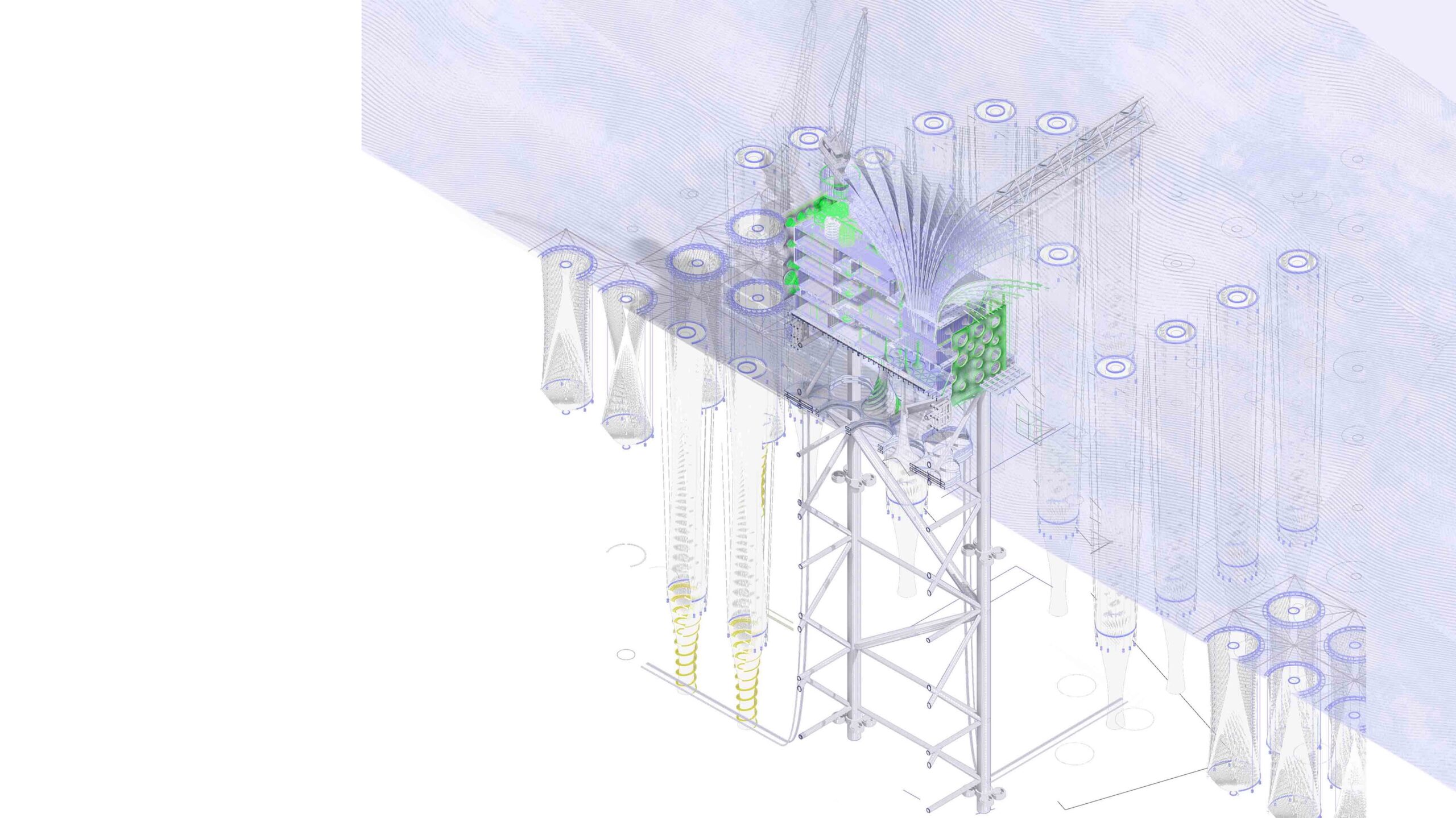Design Studio 18 ARCHIVE
Tutors: Ben Pollock and Laura Nica
Ben Pollock is an architect, research fellow, environmentalist and activist with an interest in regenerative development and climate adaptation. @4Disland / @ClimateCartographics / @ACAN
Laura Nica is a practicing architect, digital designer & founder of Laura Nica Studio. Working on multiple interdisciplinary projects, her interests extend to material research, digital fabrication and assemblage processes. @LauraNicaStudio
designstudio18.com / @ds18_westminster
Air, Architecture + other Climates: Thermal Domains
The context of our global climate and ecological emergency provides the foundation for all DS18 investigations. We use the architectural project as a tool to test the effects of changing environmental processes upon life and design; to communicate and represent these intangible entangled global issues to new audiences in new ways. We aim to ground projects through directed, critical research using data, experimental diagrams, cartographic imaginations and computational tools in order to record, analyse and communicate the connections between the vast assemblage of project themes, scales, actors, processes and material.
The studio continues to explore these issues through the lens of air and its thermal domains; as a vehicle of energy, heat radiates, penetrates, destroys, reshapes and nourishes. Through temperature mapping across graphs and thermometers, our thermal comfort has modified both landscapes and urban environments, and it has become a tool for capturing, channelling, storing or accelerating energetic dissipation. Throughout this year’s design explorations students endeavoured to test narratives for what future fluctuating thermal systems hold for local ecologies, communities and inhabitants; and what is architecture’s possible role within this – one of resistance, remediation, manipulations of energy or rebalancing?
In addition, and partly driven by geopolitics, socio- economic transition and policy decisions, it is hard to ignore the relationship between the UK’s thermal needs and its entanglement with the current energy and climate crisis. Business as usual, driven by prospective seasonal demand, a lack of energy security and poor thermal management, look to have untold social consequences over the coming years. How might locally-driven community- minded architecture engage with the evolving thermal disturbances and realise a more regenerative or equitable future? To site these entangled and multiply scaled issues, we began with a collective UK-wide investigation to identify key territories, critical zones and pressing thematics, before each student scaled down to a specific site of intervention for their main design project.










